The CMI music database, both in its choral and organ music iterations, exists to alleviate the stress on worship planners resulting from their responsibilities to curate a congregation's liturgical, singing life. If you are a member and want to see what the database can do, or even if you are not a member and are simply curious, see the instructions below.
To print out this article as a pdf, click here.
From the top of the CMI page, login to "Sacred Music Library." Select one of the two databases and put in your username and password:
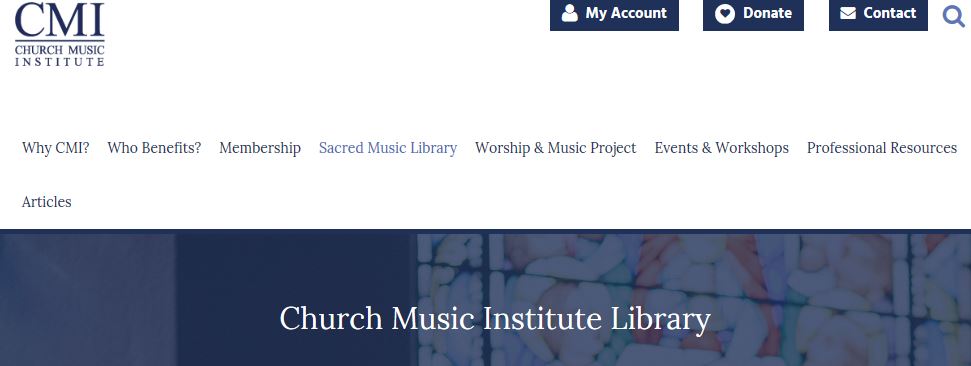
Let us select "Access the Choral Library." We are taken to a search form:
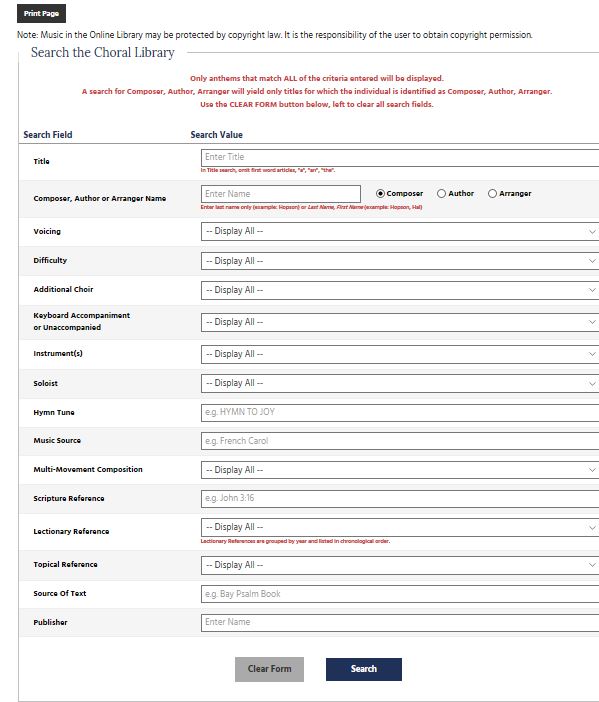
This form is clear and easy to use. Most people are probably searching for a setting of a particular hymn or tune, or else are looking for music for a particular Sunday in the lectionary. Let's search first for a hymn, say, Charles Wesley's "O For a Thousand Tongues to Sing," which we will type into the "Title" search field. We press "search" and the results page shows us that there are eleven entries with that title. Here are the first entries:
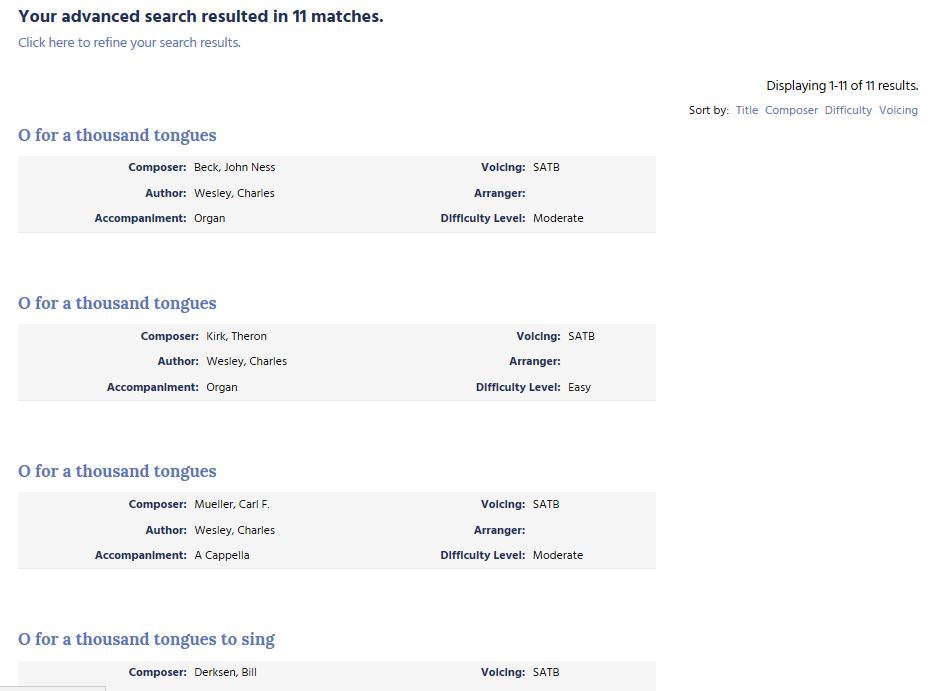
To see further information, click on the blue title about the information card. Let's explore the first entry, an SATB setting by John Ness Beck:
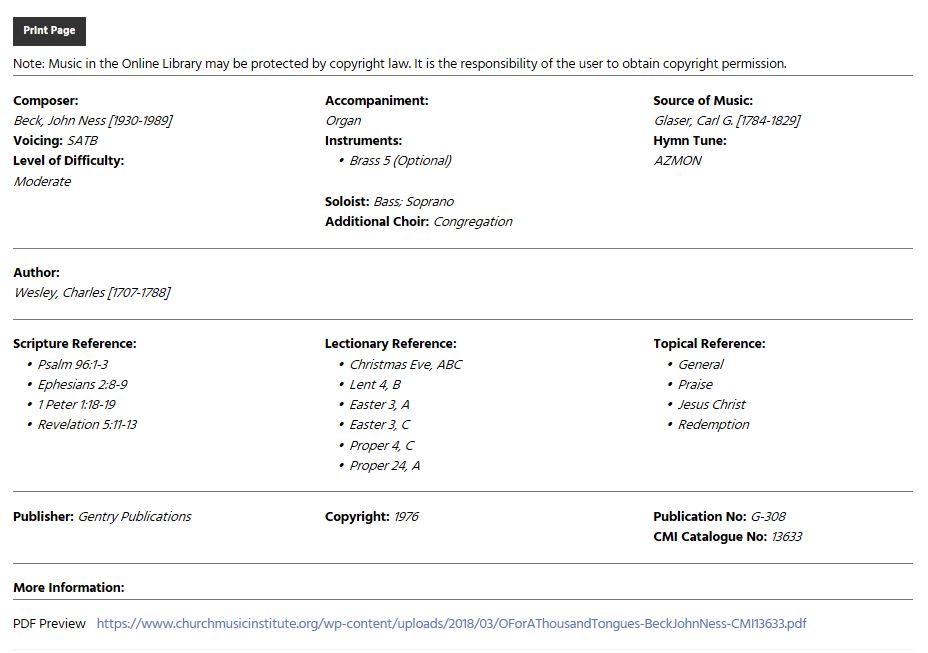
If your particular hymnal doesn't list scripture references on the same page as the hymn (The Hymnal 1982, for example), or otherwise makes them hard to find, the scripture references are here clearly given--useful when preparing sermons or meditations for the congregation or choir. The specifics of this anthem are nice to have, but most of us would like to see a copy of the music. In this case, click the "PDF Preview" at the very bottom of the page to view selected pages of music, at least as much as permitted by copyright law. Most publishers now have something similar on their websites whereon one can view select pages of music for purchase. The CMI database, however, collects music from numerous publishing houses. Clicking on the preview we see the first page of six pages which are represented:
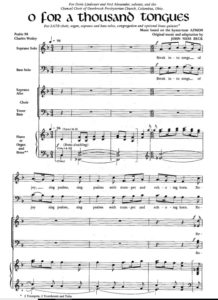
If you are in a lectionary-based church, or at least follow some semblance of the church year, a useful feature will be the "lectionary reference" on the main search page. If you serve in a "free" church and the services are arranged topically, you will probably find the "topical reference" tool more useful. Go back to the main search page of the choral library and scroll to the bottom of the search fields:
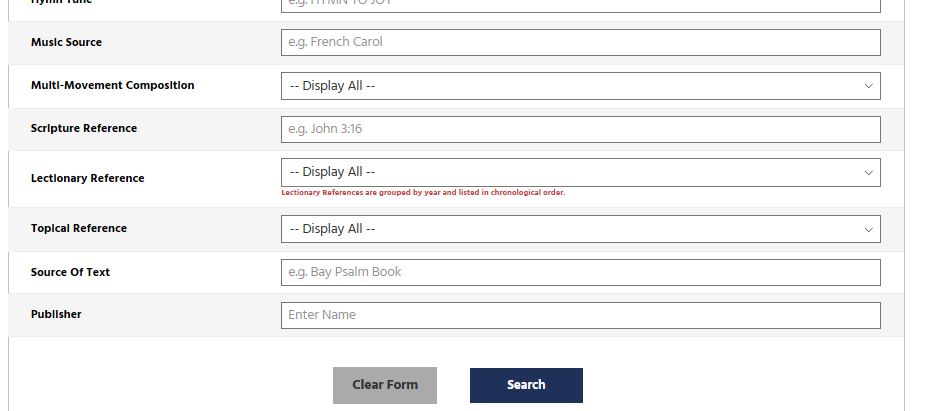
If we click on the "Lectionary Reference" field, you see the sort of results to expect--
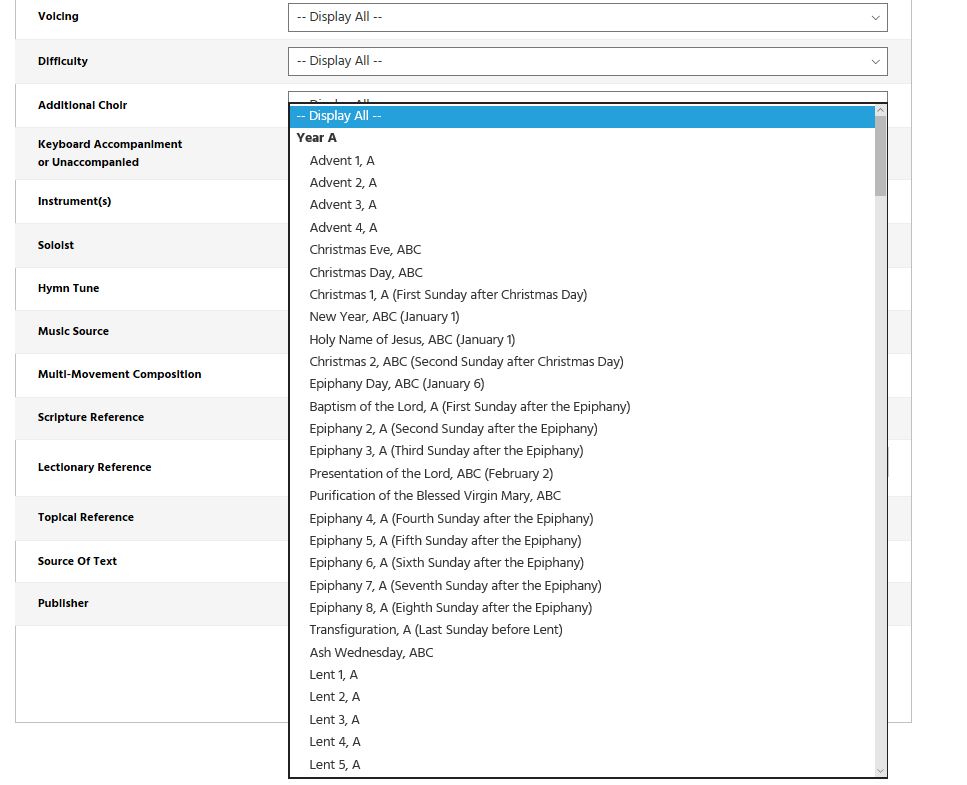
Keep scrolling down to find that the results are based on lectionary year--A, B, C. This is a very helpful tool when looking for something, say, on the Third Sunday of Lent, Year A. Clicking on "Advent 1, A," a total of 119 suggestions pop up!
For a topically-oriented service, click on "topical reference" to scroll around this menu:
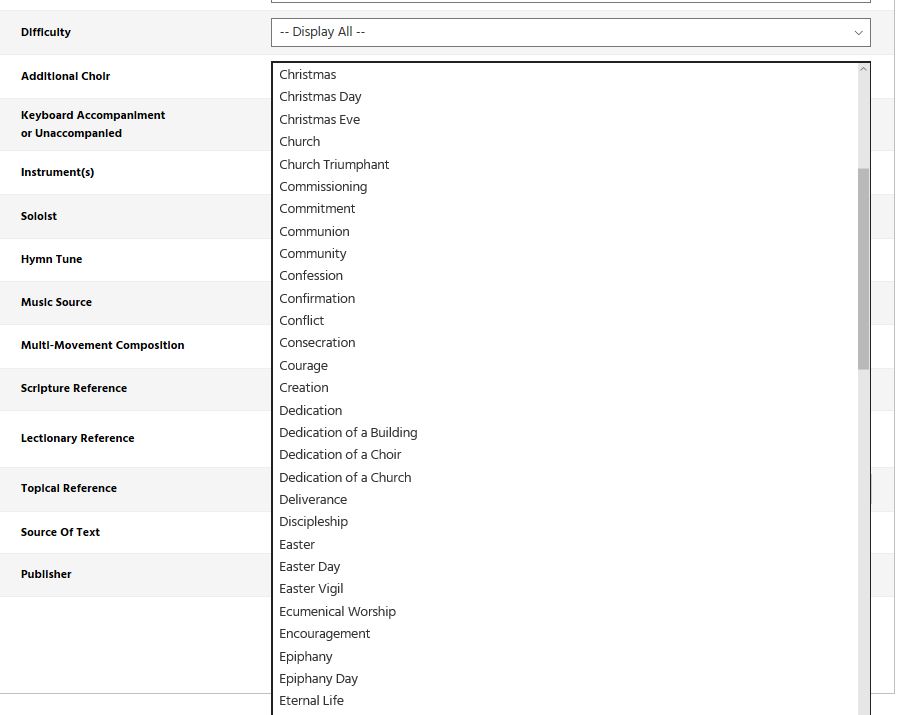
Likewise, you may browse the results of each category for musical suggestions. Of course, many times you will be looking for a setting of a particular tune, rather than text, in which case search the tune name under its relevant search field. The "voicing" category is useful, too. Are you looking for something SSA other than Mendelssohn's lovely "Lift Thine Eyes?" Simply go to the voicing field and scroll down to "SSA," and click to see 281 results!
CMI does not sell any items in the database, nor does the database necessarily provide a link to a publisher or download location, because these are variable and particularly easy to find. Let's explore how to find copyright-free music through the database. Say you are an organist looking for something on the tune ALLES IST AN GOTTES SEGEN, and you don't have time to order the music before Sunday! First, go to the organ database and type in "ALLES IST." You get 33 results:
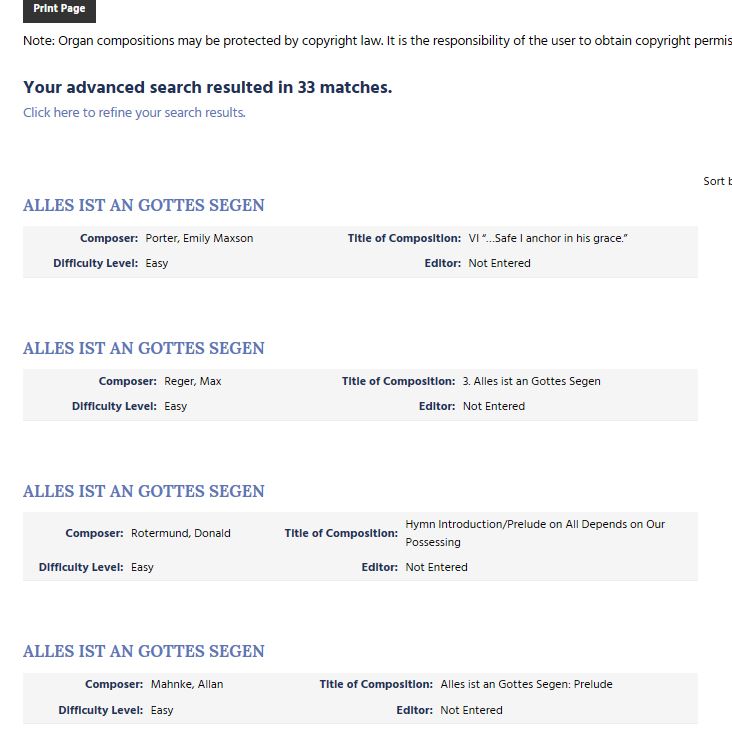
Of the four lovely compositions represented in this screenshot, we know that scores by Max Reger are more than likely to be available out of copyright. So, we click on the Reger setting:
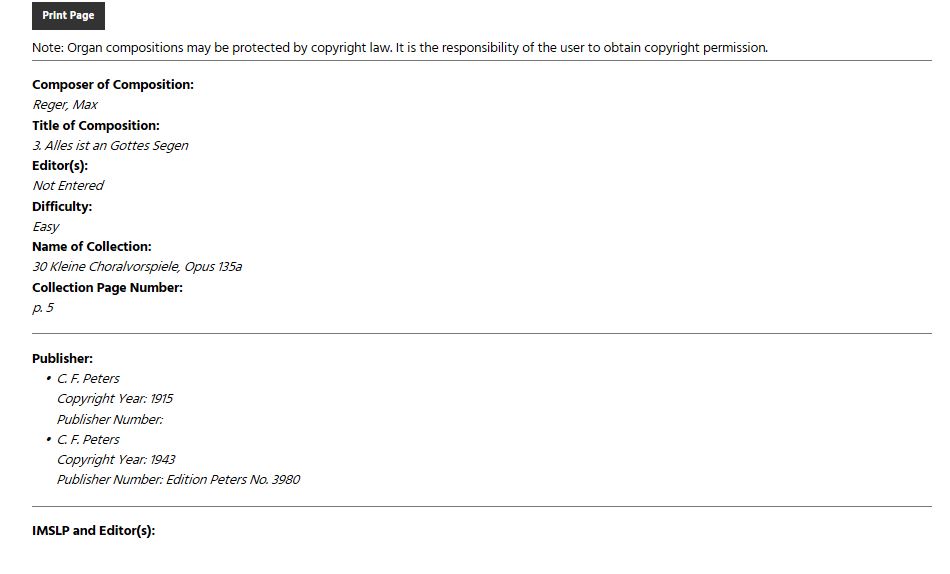
This gives us more than enough information to be able to go to the International Music Score Library Project website to see if we can download the music for free immediately. We enter "Reger, Alles ist" in the search field at IMSLP:
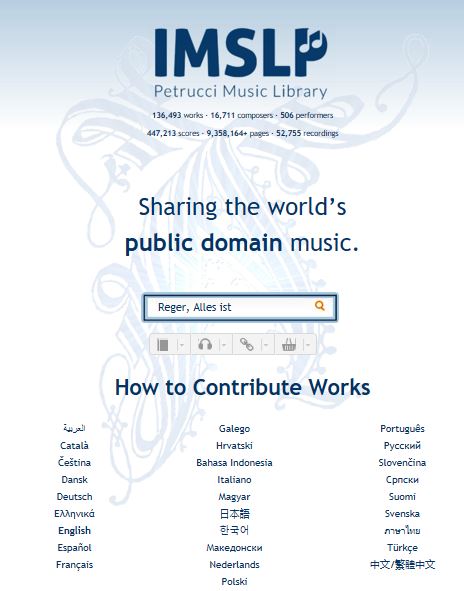
We get a number of results, including from the 30 Choralvorspiele which the CMI library suggests. Of course, we have now found additional settings, including one by Karg-Elert (which is also noted in the CMI database), which we will certainly want to look up beyond this particular suggestion. Nonetheless, let's click on the collection, Opus 135a:
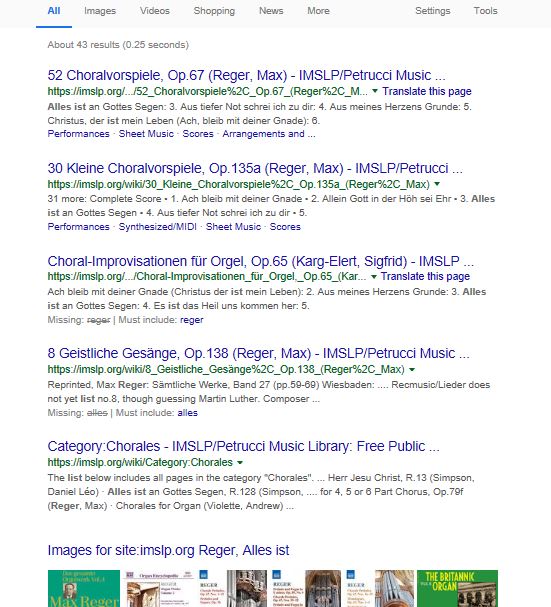
Although you may subscribe to IMSLP, it is a free service. Nonsubscribers occasionally have to wait a little longer for their download, but you get it nonetheless. After clicking on Opus 135a we get:
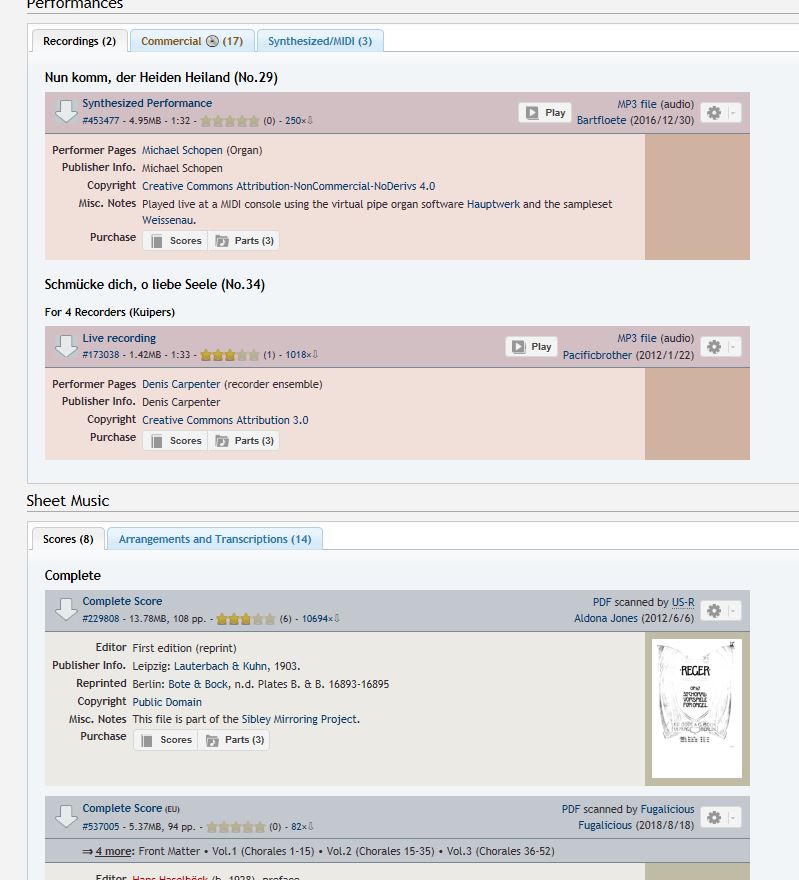
We then navigate down to the "Complete Score," click, and the entire volume downloads as a pdf. We then scroll down in the book to "Alles ist an Gottes Segen:"
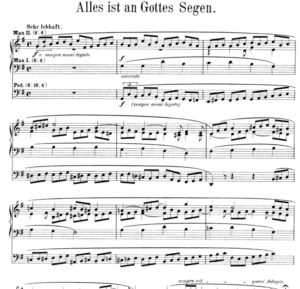
In this way, the CMI database can be a powerful tool to access music throughout the internet.